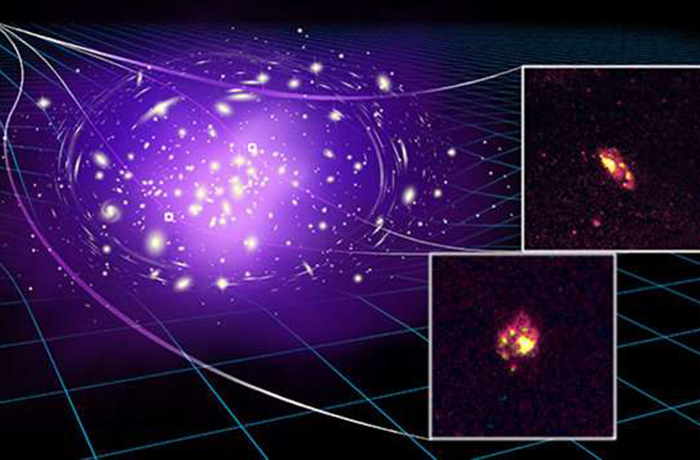Astronomers from Swinburne University of Technology and the Australian National University (ANU) have discovered that the spiral galaxy A1689B11 is around 11 billion years old.
It is the oldest galaxy ever discovered, formed just 2.6 billion years after the Big Bang. The research results were posted to the Cornell University, US Online Library, today 10/30.
The team used an advanced technique by combining a gravitational lens with an advanced device called a near infrared spectrometer (NIFS) mounted on the Gemini North telescope in Hawaii, USA to determine the characteristics and natural helix properties of this galaxy. Gravitational lenses are nature’s largest telescopes, made up of giant clusters of galaxies and dark matter. The cluster bends and amplifies the light of the galaxies behind it like a normal lens but on a much larger scale.
“This technique allows us to study ancient galaxies at high resolution capable of detecting unprecedented detail,” said Tiantian Yuan, head of research at Swinburne University. Has the ability to look back 11 billion years ago and directly witness the formation of the primordial spiral arms of a galaxy ”.
Co-author, TS. Renyue Cen (Princeton University) said studying ancient spiral galaxies like galaxy A1689B11 is key to uncovering the mystery of when and how the Hubble Sequence appeared.
Spiral galaxies are extremely rare in the early universe. The new discovery of A1689B11 will help us understand how galaxies went from a chaotic state to a thin, silent disk like the Milky Way is today.
Research has revealed many surprising characteristics on A1689B11, such as the formation rate which is 20 times faster than galaxies today, the team added. This is also characteristic of other young galaxies of the same mass in the early universe. A1689B11 has a thin disc shape, rotating smoothly with a little fluctuation. This form of spiral galaxies was extremely rare in the early universe.


